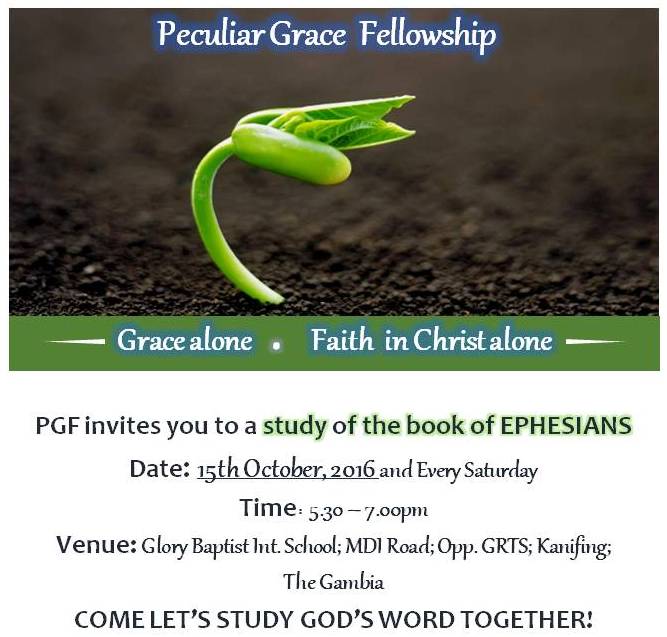“That you … may have strength to comprehend with all the saints what is the breadth and length and height and depth, and to know the love of Christ that surpasses knowledge.”
Ephesians 3:17-19.
In today’s world, the concept of love is as varied as the people who experience it. Notably, human love can often be volatile and fleeting – one moment it’s a profound profession of love, and in the next, it can swiftly turn into words of resentment, especially in the context of intimate relationships. This inconsistency starkly contrasts the love of God. God’s love transcends human comprehension, it is steadfast, enduring, and unwavering. As we dive into the scriptures, we discover that one way to grasp this divine love is by contemplating its ‘length’.
In his epistle to the Ephesians, Paul prays for all recipients, whom he refers to as ‘saints and faithful in Christ’, to experience the zenith of all spiritual experiences: ‘that you may be filled with all the fullness of God.’
It is significant to note that Paul’s epistle was directed to the entire Church – all who are considered ‘saints,’ which simply denotes those called out or set apart – and not exclusively to the clergy or a special group of people. Throughout his letter, Paul consistently addresses all members of the Church as ‘saints’ (Eph 1:15, 18; 2:19; 3:8; 4:12; 6:18). Interestingly, the term ‘saints,’ appears 67 times in the New Testament and is invariably used in the plural form. Paul’s desire was for all the believers at Ephesus to attain this profound spiritual experience. We, as modern-day believers, are no different from these Ephesian Christians.
The Apostle underlines in his prayer, that the pathway to this spiritual summit lies in knowing ‘the love of Christ that surpasses knowledge‘; to comprehend the dimensions of this love – its length, width, depth, and height. This is implied by the phrase, “that” in verse 19, which indicates that what precedes is a necessary condition for what follows:
“and to know the love of Christ that surpasses knowledge, that you may be filled with all the fullness of God” (Ephesians 3:19).
Nota bene
It is important to note upfront that what proceeds is only applicable to the heart in which Christ dwells. The text make this explicitly clear when it says, “that Christ may dwell in your hearts through faith—that you, being rooted and ground in love,” before continuing with “may have strength to comprehend with al the saints what is the breadth and length and height and depth...”. In other words, only the heart in which Christ dwells through faith can know this love that this article explores.
Next, it is essential to clarify the kind of knowledge being talked about here. The Bible uses the word “know” in two different ways. First, is head or sense knowledge. This kind of knowledge is merely intellectual and is not dependent on love. This is the kind of knowledge that the Apostle says, “puffs up”, contrasted by love, which “builds up” (1 Corinthians 8:1). One may know a lot about God and yet not know God. The second way in which the Bible uses “know” is translated from the Greek, “Ginosko”, depicting a living and deep experience, which stems from a loving and personal relationship with God. Interestingly, the Bible uses this expression to denote the intimate relationship between a husband and wife that leads to procreation (Luke 1:34). This kind of knowledge goes beyond sensory perception and permeates the heart that has made a home for Christ. Does your heart fit this description? Then you may proceed. If not, I invite you to invite Christ in, before we commence our journey.
What is the length of God’s love?
We start our journey by attempting to understand the ‘length’ of God’s love, signifying the endless and eternal nature of His love. At the start of his letter, Paul bursts into Apostolic praise, as he considered the fact that God’s love for His people began before he said “Let there be light”. In love He predestined us for adoption to Himself as sons through Jesus Christ, and chose us in Him [Christ] before the foundations of the world were laid in place (Ephesians 1:4-5). Again, notice how this sets the premise for all that follows in Paul’s letter – including this indescribable experience of embracing the fullness of God in the totality of our being.
Jeremiah 31:3 provides us with a profound affirmation of God’s everlasting love: “The LORD hath appeared of old unto me, saying, Yea, I have loved thee with an everlasting love: therefore with lovingkindness have I drawn thee.” His love is ceaseless, unchanging, and unbroken, and it endures from eternity past to eternity to come.
Romans 8:35, 38-39 reassures us of the inseparable nature of God’s love, “Who shall separate us from the love of Christ? … For I am persuaded, that neither death, nor life, nor angels, nor principalities, nor powers, nor things present, nor things to come, Nor height, nor depth, nor any other creature, shall be able to separate us from the love of God, which is in Christ Jesus our Lord.” No circumstance or power in the universe can sever us from this eternal love.
God’s love is like an unbreakable promise that persists no matter the situation, just as stated in Hebrews 13:5, “I will never leave thee, nor forsake thee.” This promise reflects the boundless length of God’s love. It started before time and will continue forevermore, uninterrupted and unchanging, irrespective of our shortcomings and failures.
Understanding the length of God’s love – its unchanging and everlasting nature – provides us with immense comfort and assurance. His love, ceaseless and steadfast, becomes our fortress and refuge in times of trials and tribulations. No matter the situations we face in life, we can remain secure in the knowledge that God’s love for us remains constant.
The length of God’s love reminds us of our worth in His eyes. Despite our imperfections and failures, He continues to love us with an everlasting love. This should encourage us to reciprocate His love, not out of obligation, but out of genuine gratitude and joy. Our actions, attitudes, and relationships should reflect this divine love that has been so generously bestowed upon us.
In conclusion, the length of God’s love is a testament to His unending commitment to us. It provides a foundation for our faith and shapes our Christian walk. As we continue to delve deeper into the dimensions of His love, let us not forget the profound truth found in the length of His love – it is eternal, unchanging, and forever faithful.


